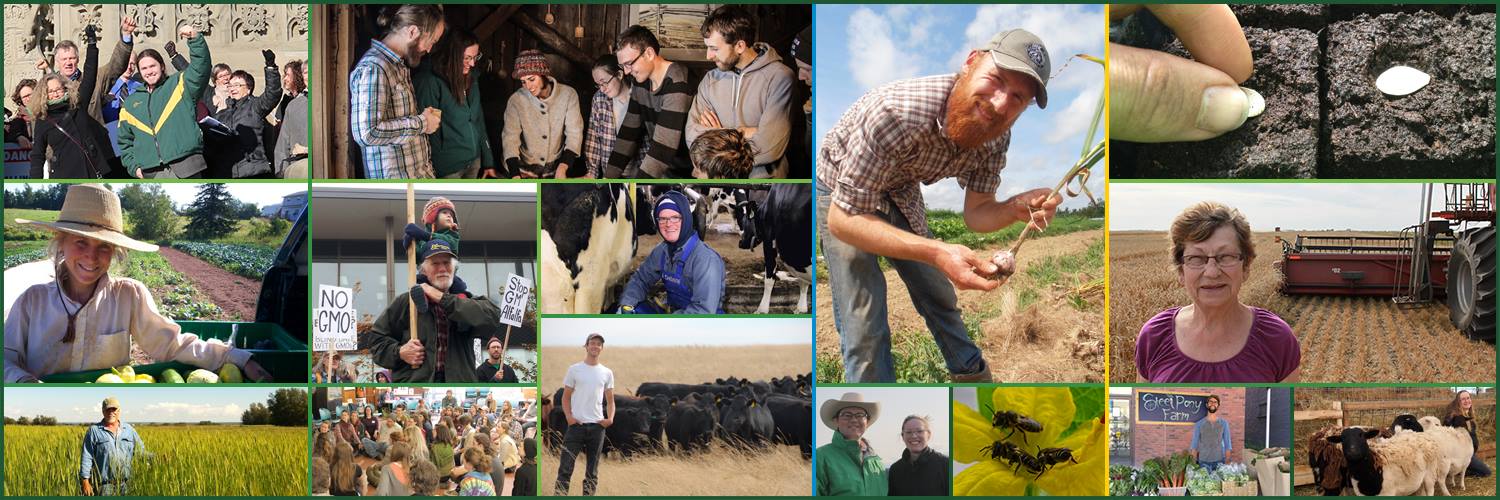Press Release from the National Farmers Union from Canada, members of La Via Campesina North America Region
(Saskatoon) – A United States government fact sheet summarizing the agriculture-related aspects of its recent bilateral deal with Mexico suggests Canada’s unparalleled grain grading and quality assurance system is now on the NAFTA negotiating table. The document says the United States and Mexico agreed that “grading standards and services will be non-discriminatory, including for grains and that grading will operate independently from domestic registration systems for grain and oilseed varietals.”
The US-Mexican agreement seems to be part of a divide and rule strategy designed to benefit multinational grain companies that stand to gain millions, if not billions, in additional profits if Canada’s grading system is dismantled. In a press release, the US Wheat Associates said they hope the Mexican deal would “spur negotiations with Canada” on the issue of grain grading. With Greg Doud, former President of the Commodity Markets Council, as the Americans’ Chief Agriculture Negotiator, it is hard to imagine that our grading system is not under attack.
The National Farmers Union (NFU) calls on the government of Canada to refuse any concessions on grain grading during NAFTA talks.
“Canada’s grain grading system is the key to our international competitiveness, particularly for wheat,” said Terry Boehm, Chair of the NFU Trade Committee. “Our grain growing region is far from ocean ports, so a high-volume, low-price approach is a non-starter. Instead, our marketing strategy is to sell high value grain to customers who are willing to pay prices that cover expensive transportation costs. Our grading system allows us to produce and deliver the high quality grain all over the world – not only to Mexico and the USA — and our variety registration system is the foundation of our grading system.”
“US producers are not missing out on the Canadian market,” added Ian Robson, Region 5 (Manitoba) Coordinator. “There are no limits on how much US-grown wheat Canadian millers can bring in. But allowing grain companies to mix American wheat with Canadian-grown wheat destined for export would give US wheat a free ride on the seed-to-port-terminal quality control system we have developed over the past century. This would compromise – and ultimately destroy – our quality reputation abroad.”
“With or without NAFTA, there will be trade between Canada, the US and Mexico because we each have something the other countries need,” said Boehm. “But trade deals like NAFTA, the TPP, CETA, etc., are not really about trade – they’re tools the corporate sector uses to get governments to give up their ability to govern in the interests of citizens and to tie the hands of future governments. We don’t need to, and must not, give up critical economic tools that benefit Canadians for the sake of any trade agreement.”
“Canada should not legitimize the deadline dramas manufactured by a Mexican President in his final days in office after electoral defeat and the US President whose focus is on his country’s mid-term elections,” said Boehm. “Our grain quality assurance systems and supply management, institutions Canadians that have created and maintained for decades and which continue to benefit farmers, consumers and the national economy, should not be sacrificed.”
For more information:
Terry Boehm, Chair, NFU Trade Committee (306) 255-7638
Ian Robson, Chair, NFU Region 5 (Manitoba) Coordinator and Chair, NFU Grain Transportation and Marketing Committee: (204) 741-1017
Ken Larsen, NFU Region 7 (Alberta): (403) 746-5792
UNITED STATES–MEXICO TRADE FACT SHEET Strengthening North American Trade in Agriculture
NFU Newsletter article: NAFTA renegotiation provides opening for renewed US attack on Canadian wheat grading framework
NFU Backgrounder – FAQs about Canada’s Wheat Class System
NFU Fact Sheet (see pages 3-4) – What Impact has Free Trade had on Canadian Farmer?
——————
This is also the Global Week of Action Against WTO and Free Trade Agreements. Check out our latest videographic explaining how WTO and Free Trade Agreements have created criminal levels of inequality and agrarian distress everywhere.
https://www.facebook.com/viacampesinaOFFICIAL/videos/1932631566775921/
https://www.facebook.com/viacampesinaOFFICIAL/videos/2032569723722032/
https://www.facebook.com/viacampesinaOFFICIAL/videos/2195655247379920/

